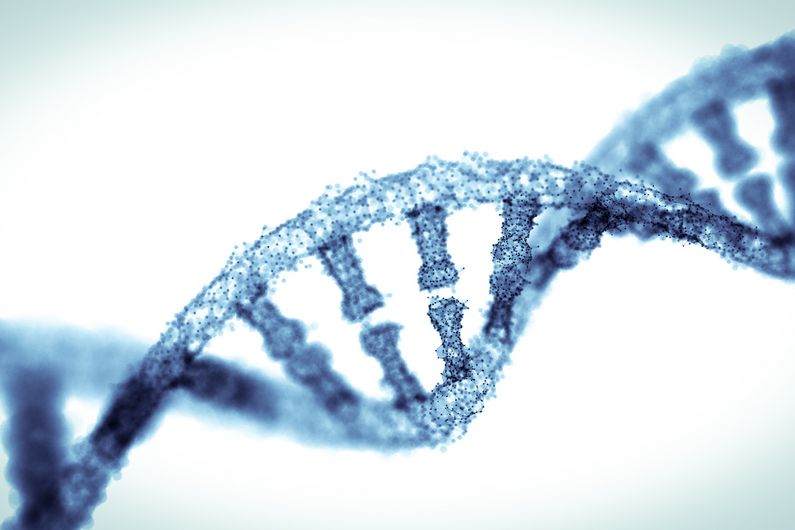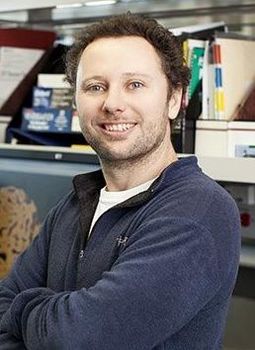Controlling "inflammaging"
- Salle de presse
08/12/2020
- UdeMNouvelles
Shedding light on a decade-old paradox linking DNA damage and and chronic low-level inflammation associated with aging, CRCHUM researchers have discovered a new function for proteins that repair DNA.
A team at the CRCHUM – Université de Montréal’s hospital research centre – has discovered a new function for proteins responsible for DNA repair in the control of an inflammatory response in aging cells, also known as senescent cells, which accumulate over time.
In their study published today in EMBO Reports, the researchers say understanding this new function will allow clinicians to distinguish between a slightly damaged cell and a very sick or aging cell.
And by doing that, they’ll be better able to control a cellular inflammatory response at the right time and improve the treatment of diseases associated with aging, the scientists say.
Their study sheds light on a paradox dating back a decade that links DNA damage and chronic low-level inflammation associated with aging, also known as “inflammaging.”
We discuss the implications with Francis Rodier. He is a professor in UdeM’s Department of Radiology, Radiation Oncology and Nuclear Medicine, and a researcher at the CRCHUM and Institut du cancer de Montréal.
Rodier supervised the efforts of his postdoctoral fellow Nicolas Malaquin, the study's first author.
Is your breakthrough important in understanding the effects of aging?
Absolutely. Aging is accompanied by a decline in general health, a decrease in normal organ function and an increased risk of developing diseases such as cancer, atherosclerosis, diabetes and Alzheimer's. All of this is related to a chronic low-level inflammation that we call “Inflammaging”. We know that the accumulation of so-called senescent cells – damaged cells that are no longer able to proliferate or perform their functions properly but remain alive and active in the body – is at least partly responsible for these problems.
That's why it becomes necessary to control them?
That's right. The negative effects of senescent cells are mainly due to the production of a multitude of pro-inflammatory molecules. So, it goes without saying that targeting and manipulating their inflammation or simply eliminating senescent cells would offer hope for new therapeutic approaches to “cure” the negative aspects of aging and associated pathologies. Understanding the mechanisms controlling this inflammation therefore seems essential to refine emerging therapeutic approaches that seek to improve healthspan during aging through the manipulation of cell senescence.
What have you discovered in your laboratory, and is it promising for the future?
We have discovered a new mechanism to control the pro-inflammatory aspect of senescent cells. More specifically, we have highlighted a new protein function for the MRE11 and ATM proteins, which are already known for their absolutely essential role in DNA repair. Removing or inhibiting these proteins prevents the production of pro-inflammatory molecules by senescent cells. Our study provides answers to questions that have been left unanswered for nearly 10 years and opens up very interesting prospects for further research. Very often, finding the answer leads to new questions. In this case, we must now find a way to interfere with the pro-inflammatory aspect of these proteins without preventing them from repairing the DNA properly. According to our results, this seems possible, so the avenues of research have already been mapped out.
About this study
"Non-canonical ATM/MRN activities temporally define the senescence secretory program", written by Nicolas Malaquin et al, was published in the journal EMBO Reports, on Aug. 12, 2020.
About the CRCHUM
The CHUM Research Centre (CRCHUM) is one of North America’s leading hospital research centres. It strives to improve the health of adults through a continuum of research spanning disciplines such as basic science, clinical research and population health. More than 2,150 people work at the CRCHUM, including nearly 500 researchers and nearly 650 students and postdoctoral fellows. crchum.com
Media contact
-
Jeff Heinrich
Université de Montréal
Tel: 514 343-7593













